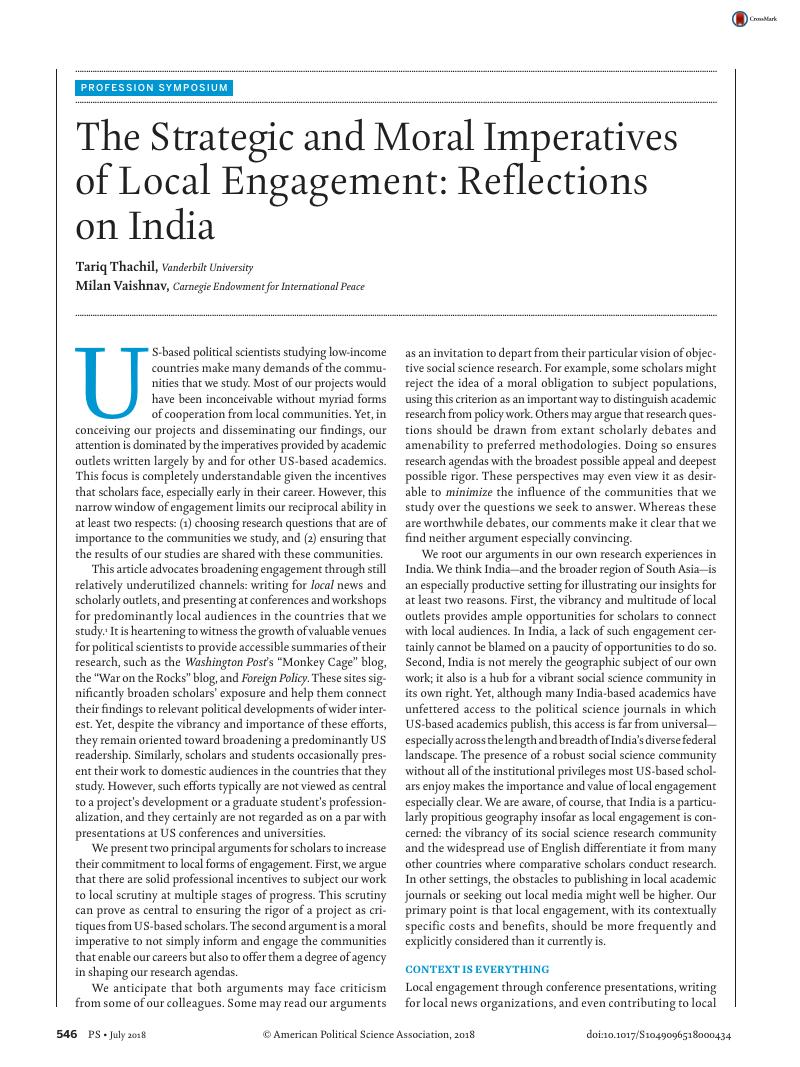Crossref Citations
This article has been cited by the following publications. This list is generated based on data provided by Crossref.
Pruett, Lindsey
Dyzenhaus, Alex
Karim, Sabrina
and
Freeman, Dao
2024.
Election violence prevention during democratic transitions: A field experiment with youth and police in Liberia.
Journal of Peace Research,
Mitra, Ankushi
Kline, Curtis
and
Bautista-Chavez, Angie M.
2024.
Civically engaged research in political science: a methodological guide.
Politics, Groups, and Identities,
p.
1.



